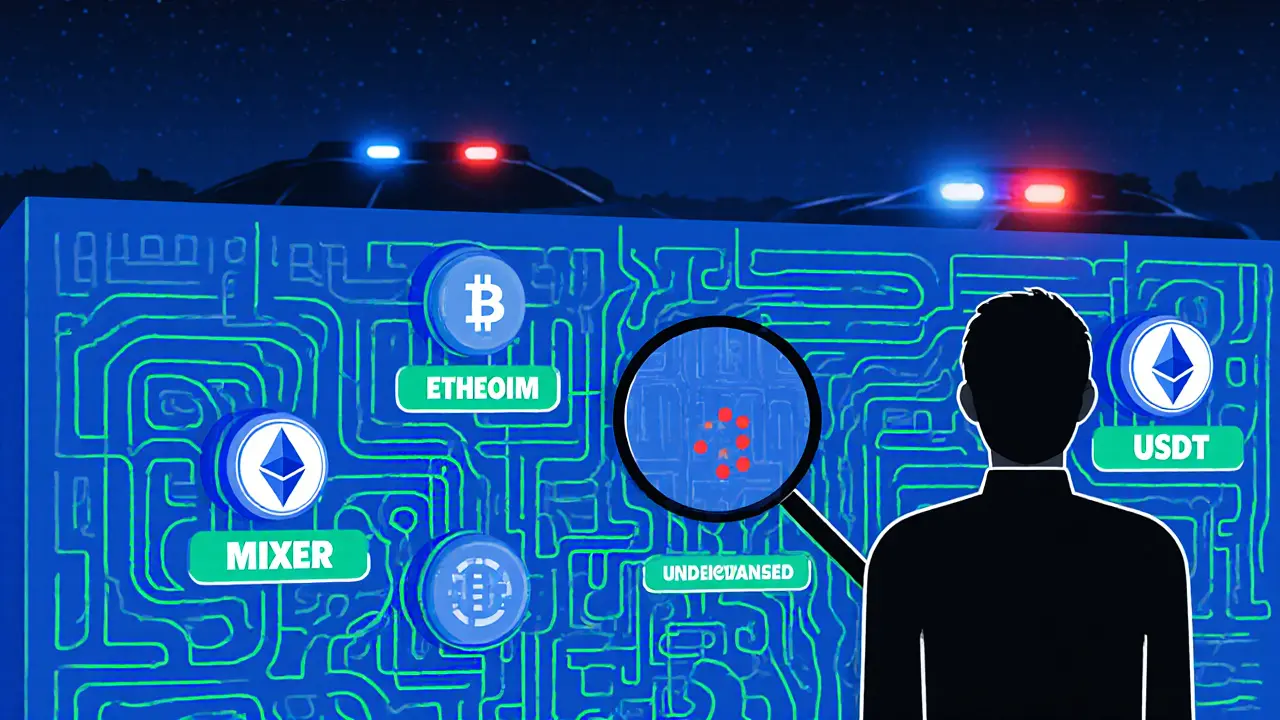Crypto Money Laundering: How It Works and How to Spot It
When people talk about crypto money laundering, the process of disguising illegal funds using digital currencies to avoid detection. Also known as cryptocurrency laundering, it’s not science fiction—it’s happening right now, and the IRS and global regulators are tracking every move. Unlike traditional banking, crypto transactions can feel anonymous, but that’s a myth. Every blockchain transaction leaves a permanent trail, and tools now exist to follow the money—even if it jumps from Bitcoin to Ethereum to a privacy coin.
Most crypto tax evasion, the illegal act of hiding crypto income from tax authorities is just one part of the bigger puzzle. People use mixers, peer-to-peer trades, and fake exchanges to break the link between their real identity and their crypto activity. But as seen in cases like Coinbit’s collapse or the rise of fake DEXs like LocalCoin DEX, many of these methods are either too sloppy or outright scams. The real danger isn’t just the criminals—it’s the new users who unknowingly help them by using unregulated platforms that don’t ask questions.
AML crypto, anti-money laundering measures designed to prevent illicit crypto flows is getting stronger. Exchanges now require ID verification. Wallets are being monitored. Even decentralized platforms like SharkSwap and HaloDeX are flagged because they lack transparency—making them perfect for bad actors. And when someone tries to cash out large sums without paperwork, the system notices. The IRS doesn’t need to know your wallet address—they just need to see a pattern: small deposits, rapid transfers, then a big withdrawal to a fiat account. That’s a red flag.
What you’ll find in these posts isn’t theory. It’s real examples: how Pakistan’s 15% crypto tax forced people to hide income, how Edom coin’s fake market cap was a cover for a pump-and-dump scheme, and how the Step Hero airdrop gave away tokens that later vanished—because the team disappeared. These aren’t just bad projects. They’re tools used to launder money under the guise of "free crypto." The same platforms that promise easy gains are often the same ones that clean dirty cash.
If you’re trading crypto, you’re part of the system. You don’t have to be a cop to help stop this. Just avoid platforms with no team, no audits, and zero trading volume. Stick to ones that ask who you are. Because when you skip the basics, you’re not just risking your money—you’re unknowingly helping criminals hide it.
Money Laundering Charges for Crypto: What Happens If You Get Caught
Crypto money laundering can lead to serious prison time-up to 20 years in extreme cases. Learn how charges work, what triggers harsh sentences, and why stablecoins are now the tool of choice for criminals.
Details +